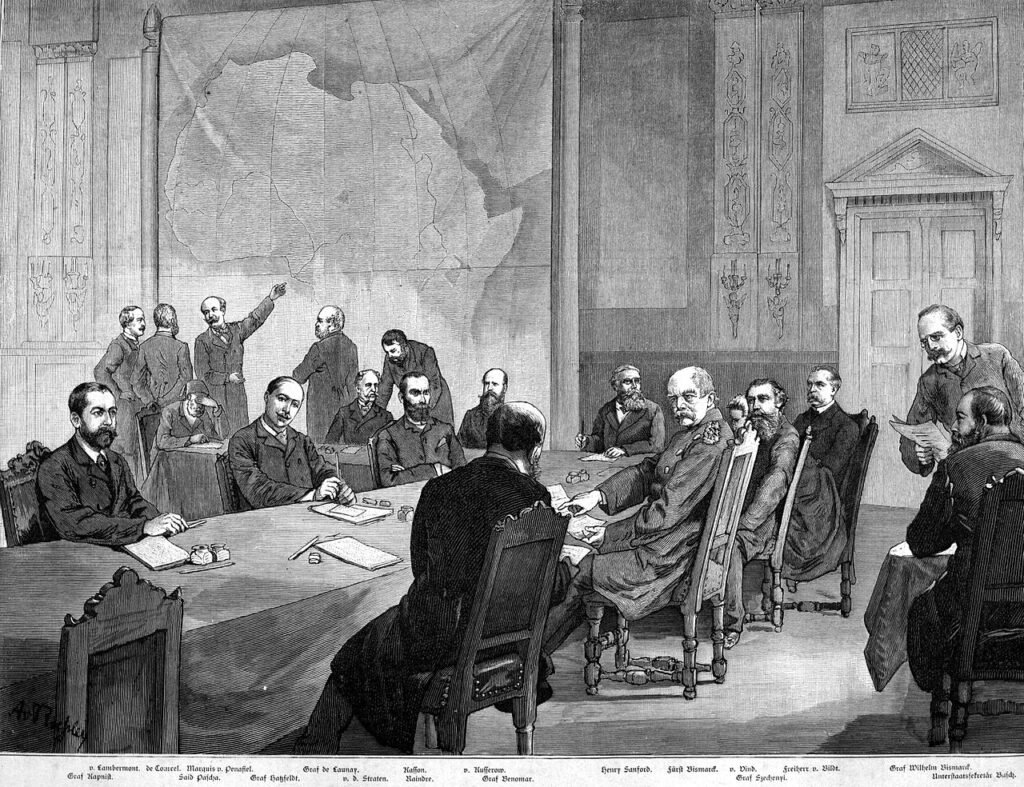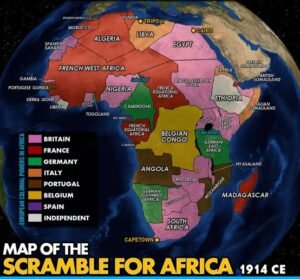The Scramble for Africa (1881–1914) was one of the most dramatic episodes in modern history. This period saw European powers rush to carve up the African continent, leaving an indelible mark on its history, culture, and political landscape. In this article, we'll explore the key events, places, and impacts of this fascinating and turbulent era.
What Triggered the Scramble for Africa?
The Scramble for Africa didn't happen overnight. It was a culmination of various factors that pushed European powers to seek control over African territories. Let's dive into what set the stage for this land grab.
Economic Motivations
Europe in the late 19th century was undergoing significant industrialization. The demand for raw materials like rubber, cotton, and minerals skyrocketed. Africa, with its vast untapped resources, became a goldmine for European industries. Think of it as a global shopping spree, with Africa being the giant mall stocked with everything Europe needed.
Political Competition
National pride and rivalry among European nations also fueled the scramble. Countries like Britain, France, Germany, and Belgium were eager to expand their empires, and possessing colonies was a status symbol. Imagine a high-stakes game of Monopoly, where each country wanted to own as much of the board (in this case, Africa) as possible.
Strategic Interests
Control over certain regions of Africa also meant strategic military advantages. For instance, the Suez Canal in Egypt was a crucial maritime route that Britain sought to control to protect its interests in India. Similarly, other nations had their eyes on key ports and regions that would enhance their global influence.
Exploration and Adventure
The spirit of adventure and exploration was also a driving force. European explorers like David Livingstone and Henry Morton Stanley's travels across Africa piqued public interest and curiosity. Their tales of uncharted territories and rich cultures added to the allure of African colonization.
Key Events in the Scramble for Africa
Several key events and decisions shaped the course of the Scramble for Africa. Let's take a closer look at some of the most significant moments.
The Berlin Conference (1884-1885)

The Berlin Conference was a pivotal moment in the Scramble for Africa. Convened by German Chancellor Otto von Bismarck, this conference aimed to regulate European colonization and trade in Africa. Representatives from 14 European countries and the United States attended, but no African leaders were present. The conference resulted in the General Act of the Berlin Conference, which established rules for the colonization process, including the principle of effective occupation.
King Leopold II and the Congo Free State
King Leopold II of Belgium played a notorious role in the Scramble for Africa. He established the Congo Free State, a personal colony, under the guise of humanitarian and scientific work. However, the reality was brutal exploitation and atrocities against the Congolese people. The demand for rubber and ivory led to widespread forced labor and horrific abuses, leading to international condemnation.
The Fashoda Incident (1898)
The Fashoda Incident highlighted the intense rivalry between European powers in Africa. French and British forces nearly went to war over a small Sudanese village called Fashoda. This standoff illustrated the lengths to which European nations were willing to go to assert their dominance in Africa.
Regions and Territories Affected by the Scramble for Africa
The Scramble for Africa left no region untouched. Let's explore some key territories and their colonial histories.
West Africa
- Nigeria: Colonized by Britain, Nigeria became one of the most economically significant colonies due to its resources like palm oil and cocoa.
- Senegal: France established its rule in Senegal, making it a crucial part of French West Africa.
East Africa
- Kenya: British colonization transformed Kenya into a major agricultural hub, especially for coffee and tea.
- Tanzania: Germany initially colonized Tanzania (then Tanganyika) before it was transferred to British control after World War I.
Central Africa
- Democratic Republic of the Congo: As mentioned earlier, the Congo Free State under King Leopold II became synonymous with brutal exploitation.
- Cameroon: Germany's colonization of Cameroon introduced significant infrastructural developments, but also harsh labor policies.
Southern Africa
- South Africa: British and Dutch (Afrikaner) interests clashed, leading to the Anglo-Boer Wars. South Africa's rich mineral resources, like gold and diamonds, made it highly coveted.
- Namibia: Germany's colonization of Namibia (then South West Africa) saw one of the first genocides of the 20th century against the Herero and Nama people.
North Africa
- Egypt: Britain's strategic control over Egypt and the Suez Canal was vital for maintaining their empire, particularly in India.
- Algeria: France's colonization of Algeria involved significant settler immigration and became a key French territory.
Impact of the Scramble for Africa
The Scramble for Africa had profound and lasting impacts on the continent. These effects are still felt today and shape the socio-political landscape of modern Africa.
Political Fragmentation and Borders
One of the most significant impacts was the arbitrary drawing of borders by European powers. These borders often ignored existing ethnic, cultural, and linguistic divisions, leading to conflicts and political instability that continue to this day.
Economic Exploitation
The extraction of resources for European benefit left African economies underdeveloped and dependent. Infrastructure built during this period primarily served colonial interests, not the local population.
Cultural Disruption
Colonial rule imposed European languages, education systems, and religions, disrupting and often eradicating traditional African cultures and societal structures.
Resistance and Nationalism
The harsh realities of colonial rule also sparked resistance and the rise of nationalist movements. Figures like Jomo Kenyatta, Kwame Nkrumah, and Patrice Lumumba emerged as leaders in the fight for independence, inspired by a vision of a free and self-determined Africa.
Conclusion
The Scramble for Africa (1881–1914) was a transformative period that reshaped the African continent and its future. European powers, driven by economic greed, political rivalry, and a sense of adventure, carved up Africa without regard for its people or cultures. The impacts of this era are still evident today, from political boundaries to economic challenges and cultural shifts. Understanding this period is crucial to appreciating the complex history and present-day realities of Africa.
By delving into the Scramble for Africa, we gain insights into the forces that have shaped our world and the ongoing journey towards a more equitable and self-determined future for the African continent.
Frequently Asked Questions
Q: What was the primary reason for the Scramble for Africa?
A: The primary reasons were economic interests, political competition, strategic interests, and the spirit of exploration and adventure.
Q: What was the Berlin Conference?
A: The Berlin Conference (1884-1885) was a meeting where European powers established rules for the colonization of Africa, without the presence of any African leaders.
Q: Which European countries were involved in the Scramble for Africa?
A: Major players included Britain, France, Germany, Belgium, Portugal, Spain, and Italy.
Q: What were some of the impacts of the Scramble for Africa?
A: It led to political fragmentation, economic exploitation, cultural disruption, and sparked nationalist movements.
Q: How did the Scramble for Africa end?
A: The Scramble for Africa gradually ended with the onset of World War I and the subsequent rise of independence movements across Africa.


